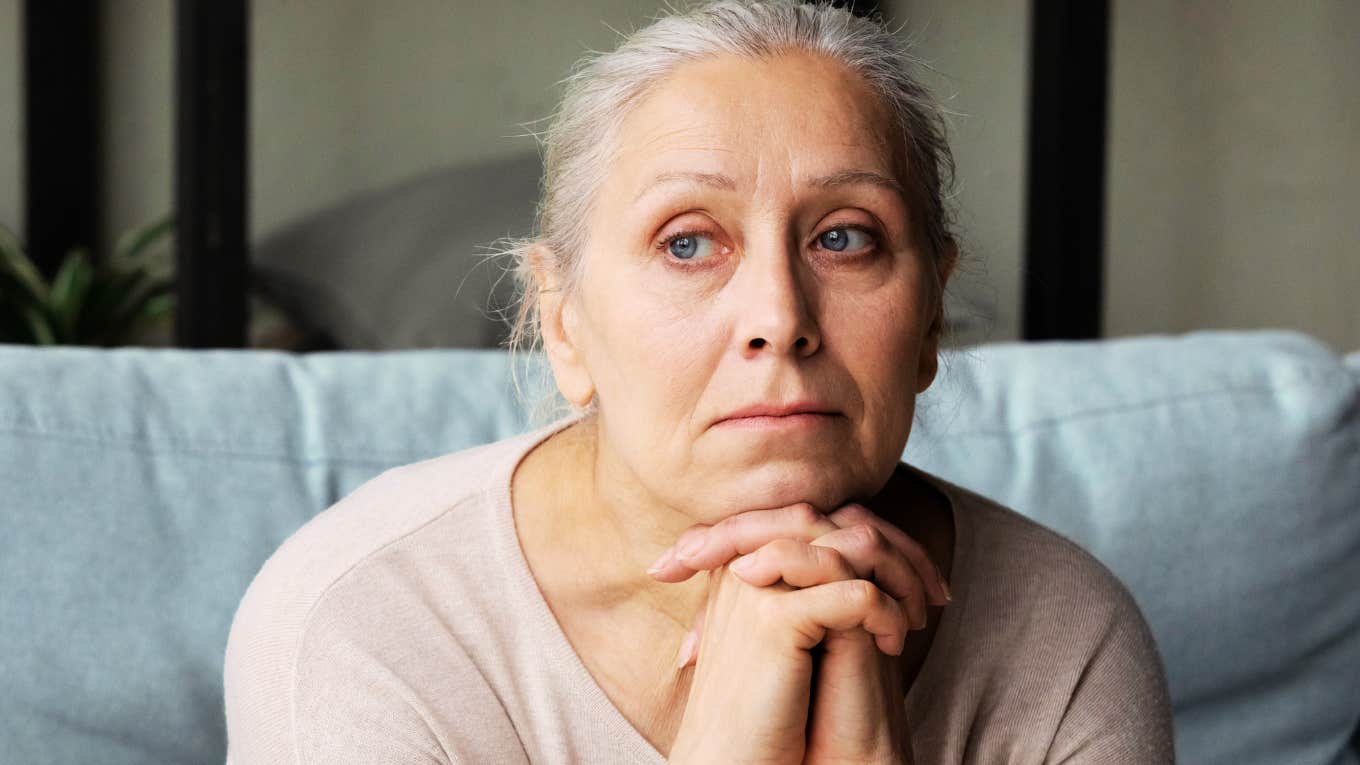6 Ways Adult Children Unknowingly Wound Their Parents Deeply
Experts say parental estrangement is on the rise as adult children want freedom from familial stressors.
 fizkes | Shutterstock
fizkes | Shutterstock Many adult children find spending time with parents or other family members draining and emotional. In these situations, they often try to maintain a connection with their families while creating space or distance.
Parents may interpret lack of contact or attention as a sign that their child doesn't care about them or doesn't want a relationship. When adult children are distant, this can deeply wound parents, making them feel alone and disconnected from their family, even if the estrangement was justified and necessary.
And this isn't the only way adult children unknowingly wound their parents — other behaviors hurt parents that many adult children don't even realize do damage, whether said behavior was warranted or not.
Here are six ways adult children unknowingly wound their parents deeply:
1. Not being responsive
 TetianaKtv / Shutterstock
TetianaKtv / Shutterstock
Clinical psychologist Dr. Sharon Saline explained that an adult child can unknowingly hurt their parents by not responding to texts or calls — at all for several days. As parents, we naturally worry and wonder about our children, regardless of their age.
While adult children are often busy living their lives, parents would like to maintain some type of connection. The challenge lies in the type of connection and the frequency.
It's important to discuss this openly with curiosity instead of judgment or disappointment. How often would you like to check in/chat? I notice that you don't respond to my texts for a week. When that happens, I worry if you are okay.
Would you be willing to reply with an emoji if you don't have time to write back? Emphasize your desire to be engaged and that you want to do it on their terms. Then they won't feel infantilized.
You want them to desire to communicate with you, not feel burdened. This likely will take time and practice so it's important to hang in there.
2. Not staying in touch
 fizkes / Shutterstock
fizkes / Shutterstock
As adults, our lives may get so busy that we can't always find time to call or visit our parents. But our parent's lives are often not as busy, according to therapist Dr. Gloria Brame.
Indeed, the older they get, the lonelier they may feel. Keeping in touch with them regularly — at least once every 1-2 weeks — is comforting to them.
Feeling connected to their children, and keeping up with what is going on in their lives, as well as the lives of their grandkids, makes them feel wanted and centers them as a normal part of family life.
Calls, visits, greeting cards on special occasions, and any other forms of regular contact (including texts!) give them the emotional connection they crave with their kids.
3. Neglecting them
 fizkes / Shutterstock
fizkes / Shutterstock
The deepest hurt a parent experiences with their adult children is the pain of neglect. Kids grow up and have their own lives, careers, and families. They get too busy and fail to call or visit their parents.
Marriage and family therapist Mary Kay Cocharo explained that they don’t seem to realize how hurtful this absence is to the mothers and fathers who love them. Sometimes, a quick check-in is all it takes to let them know that you care.
4. Dismissing their parents 'treasures' as 'trash'
 Asier Romero / Shutterstock
Asier Romero / Shutterstock
Older folks tend to look at their artifacts as things that hold their history, their struggles, and their love, according to Dr. Regina Lark, PhD. When their kids say no, it can feel like they're not just rejecting the objects, but the memories, the values, and even the life their parents built.
And there are lotta reasons why their kids don't want their stuff. They have their own stuff, stuff is a lot easier and cheaper to get today than in their parent's day, not their taste or style.
5. Failing to thrive
 ShotPrime Studio / Shutterstock
ShotPrime Studio / Shutterstock
Life coach Kathy Ramsperger explains that parents just want the best for their kids. If an adult child isn't thriving, staying shut up in the dark with a computer as their only friend, or is living with mental health issues or trauma, it hurts us, too.
The best day I had as a parent was the day I knew both my adult kids had launched. That song, 'I Hope You Dance,' got it right.
Good arents want their kids to live their lives and write their own stories, not stick around with us. Although they're welcome to share their stories with us at a holiday meal...even that's not mandatory.
6. Writing them off as irrelevant
 ViDI Studio / Shutterstock
ViDI Studio / Shutterstock
Life coach Mitzi Bockmann believes that adult children hurt their parents deeply by writing them off as addled, ill-informed, and irrelevant old people. Boomers and Gen-Xers were young once. We were well-educated, well-informed, and radical in comparison to our parents.
While our parents might be gone, we are still well-educated and well-informed. Even though our thought processes may seem archaic to our kids, we still don't deserve to be condescended to by a younger generation who believe that they know it all and have all the answers.
Monica Robles is a California-based writer and an editorial intern for YourTango.

